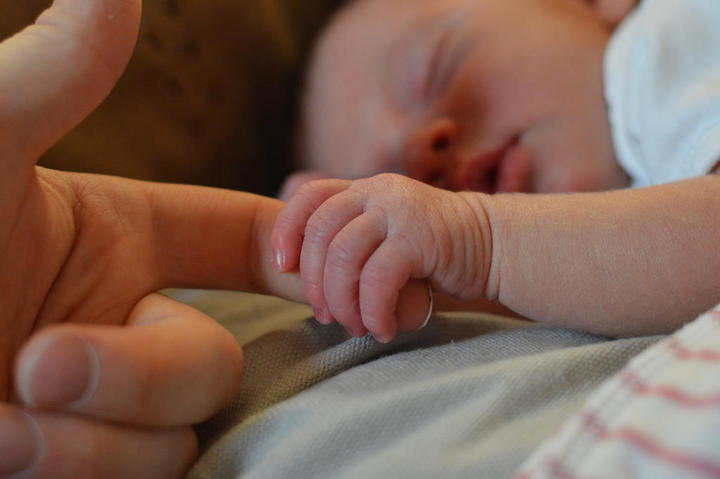What Is Tokophobia?
Tokophobia is the extreme fear of giving birth. Women who have this phobia have a pathological fear of giving birth, and will often avoid becoming pregnant or giving birth altogether.
This fear may lead women to avoid becoming pregnant, even though they want to have children, or to opt for a Caesarean section in order to avoid vaginal birth. Tokophobia may occur in women who have never given birth to a child, but it may also affect women who have had prior traumatic birth experiences.
Symptoms of Tokophobia
Tokophobia is a type of specific phobia, which is an anxiety disorder in which people feel an irrational and unreasonable amount of fear about a specific object or situation.
Symptoms of tokophobia can include sleep disturbances, panic attacks, nightmares, and avoidance behaviors.
Other symptoms might include:
-
Anxiety and depression
-
Extreme fear of birth defects, stillbirth, or maternal death
-
Feelings of dread at the thought of pregnancy and birth
-
Insistence on a Caesarean section for their birth
Women may sometimes avoid any sexual activity out of fear of becoming pregnant. Those who do become pregnant may be more likely to request an elective c-section, feel greater trauma surrounding the birth, and may even have difficulty bonding with her baby.
Causes of Tokophobia
Types
There are two different types of tokophobia: primary and secondary.
-
Primary tokophobia: Occurs in people who have never given birth before but have tokophobia.
-
Secondary tokophobia: Occurs when fear stems from a prior experience of giving birth.
In addition, some people may experience post-traumatic stress disorder (PTSD) after a difficult childbirth.This can be related to tokophobia but is not quite the same.
Common symptoms of tokophobia include:
-
Avoidance of intercourse
-
Delaying or avoiding pregnancy even though you want to have children
-
Fixation on what could “go wrong” during childbirth, such as maternal or child death or birth defects
-
Going to great lengths to avoid getting pregnant (such as doubling or tripling birth control methods)
-
Insomnia or nightmares
-
Mood swings
-
Panic attacks or increase in anxiety symptoms such as fatigue, irrational worry, or headaches
-
Requesting a cesarean delivery (c-section) without medical reasons
-
Symptoms of depression, such as fatigue, body pain, decreased appetite or libido, or loss of interest in favorite activities
Treatment for Tokophobia
It is important that women with tokophobia receive treatment in order to ensure that both the mother and child are healthy. This can include receiving support from the woman's obstetrician in coordination with a psychologist or psychiatrist.
A mental health professional can help address some of the underlying reasons why the disorder may have developed in the first place, including pre-existing depression or anxiety conditions.
Maternal health care providers can offer reassurance, education, and appropriate health care so that women feel that their fears surrounding the birth process and adequately addressed.
Support
Effective support can occur one-on-one or through support groups. Such support is often provided by people that women already know, such as family members or friends, but it can also come from obstetricians, midwives, psychologists, or counselors.
Many women seek out the guidance and support of other women who have already had experience with bearing children, often including mothers, sisters, family members, and friends. Research has shown that providing support to women with a severe fear of birth resulted in a 50% reduction in cesarean rates.
Medications
Medications may also be used either alone or in conjunction with other treatment approaches to treat underlying depression, anxiety, or other psychiatric disorders.
Treatment for tokophobia takes a multidisciplinary approach, incorporating both psychological and obstetric support.
Coping With Tokophobia
If you feel that a significant fear of childbirth and pregnancy might be affecting your life, there are steps that you can take to get the help you need.
Discuss Your Feelings
Some anxiety is normal, and your doctor or midwife may be able to provide reassurance and further assistance. Talking to trusted friends or loved ones can also help. Knowing that there are people who understand your fears and are there to offer support can help reduce anxiety.
Begin Forming a Birth Plan
Talk to your doctor about your wants and needs, including your options for pain management and giving birth. Having a plan and choosing your method of delivery can help you feel more empowered and in control.
Avoid Childbirth “Horror Stories"
Hearing such stories can exacerbate your tokophobia. Instead, seek out good medical information and focus on positive experiences with childbirth. If people try to share stories that you do not want to hear, it is perfectly acceptable to ask them to stop.
Take a Prenatal Support Class
Learning about what happens during childbirth and what you can do to manage labor pain can help you feel more capable as your approach giving birth.
Talk to a Mental Health Professional
If your fear is interfering with your life, ask your doctor to refer you to a psychiatrist, psychologist, counselor, or another mental health provider who can offer further advice and assistance.
QUEEN ROSE Summary
First of all, we should fully understand the causes and symptoms of "Childbirth Phobia". Due to the hormonal changes during pregnancy, pregnant mothers are prone to mood swings. In case of emotional anxiety, it is important to get support from family, friends and seek help. Tokophobia, which can have a major impact on a woman’s life and functioning. Any adverse emotions or anxiety should be promptly identified, treated and actively treated by consulting a maternal health care provider, psychologist.
Sources
-
Bhatia MS, Jhanjee A. Tokophobia: a dread of pregnancy
-
Furuta M, Horsch A, Ng ESW, Bick D, Spain D, Sin J. Effectiveness of trauma-focused psychological therapies for treating post-traumatic stress disorder symptoms in women following childbirth: A systematic review and meta-analysis.
-
Hofberg K, Ward MR. Fear of pregnancy and childbirth.




Leave a comment
This site is protected by hCaptcha and the hCaptcha Privacy Policy and Terms of Service apply.